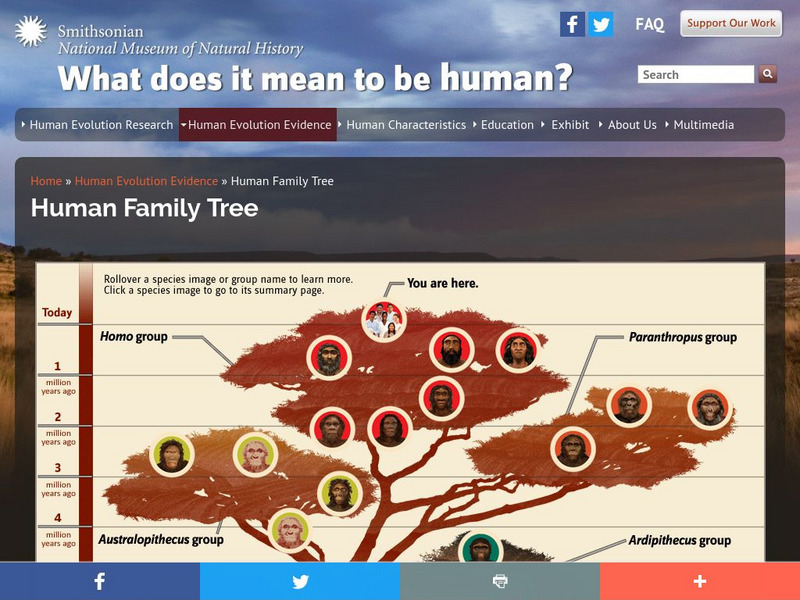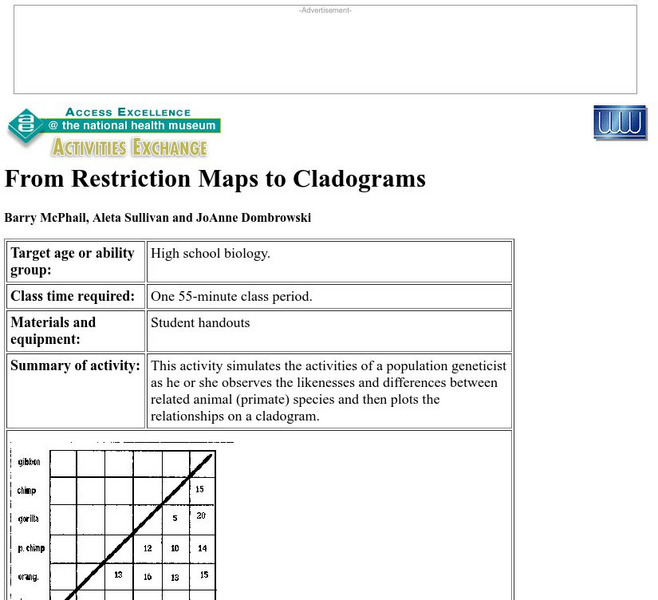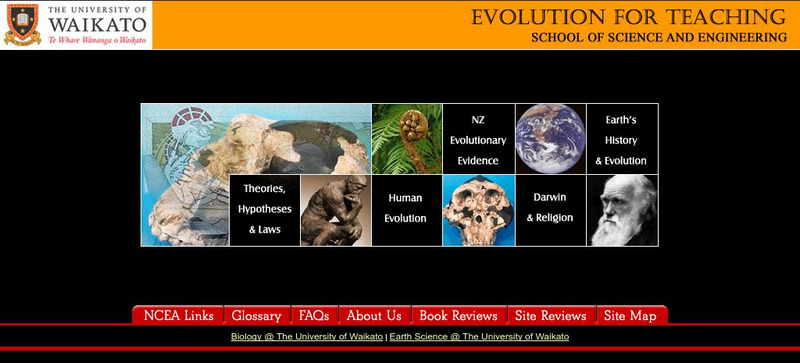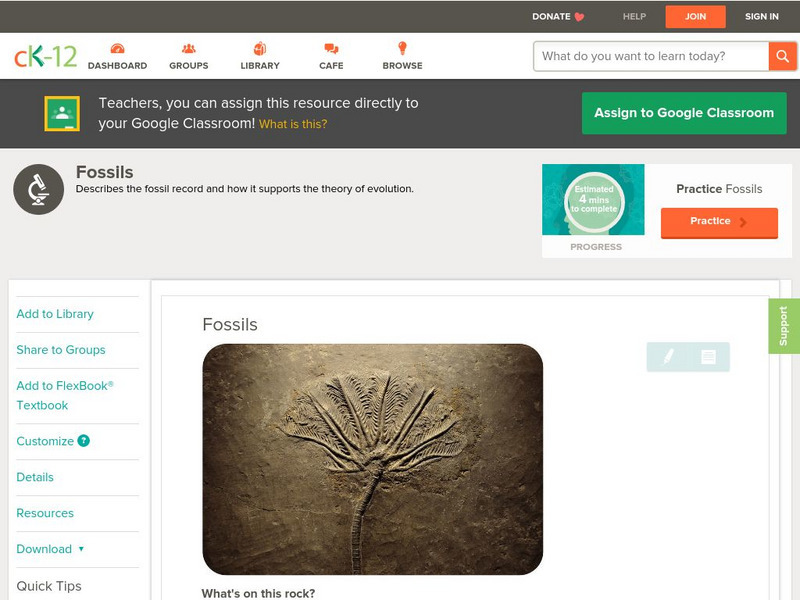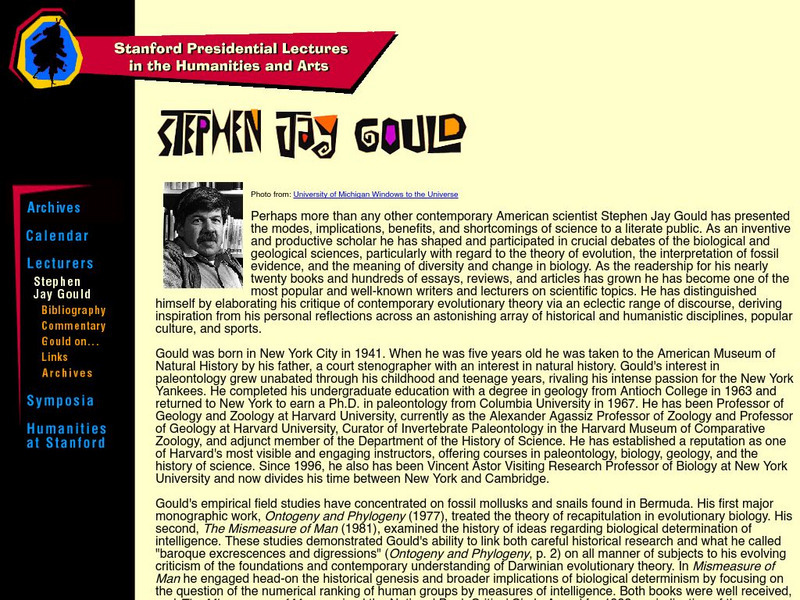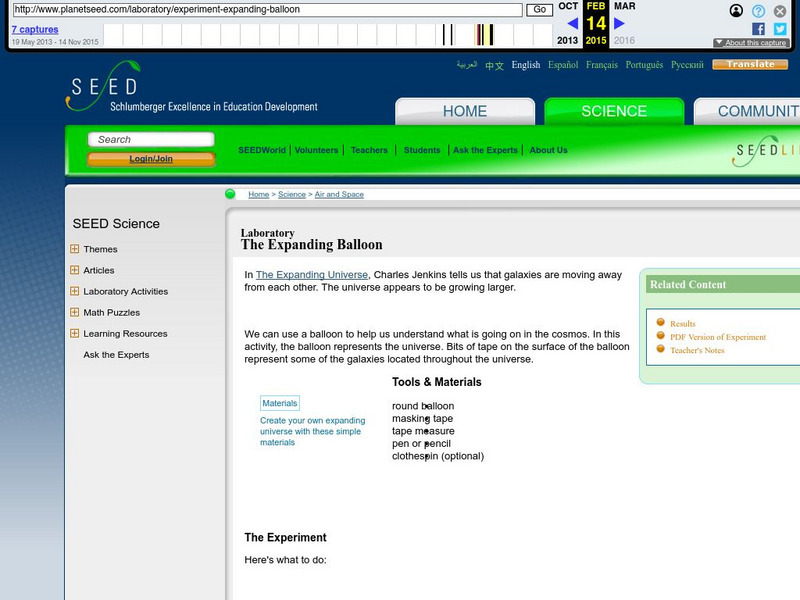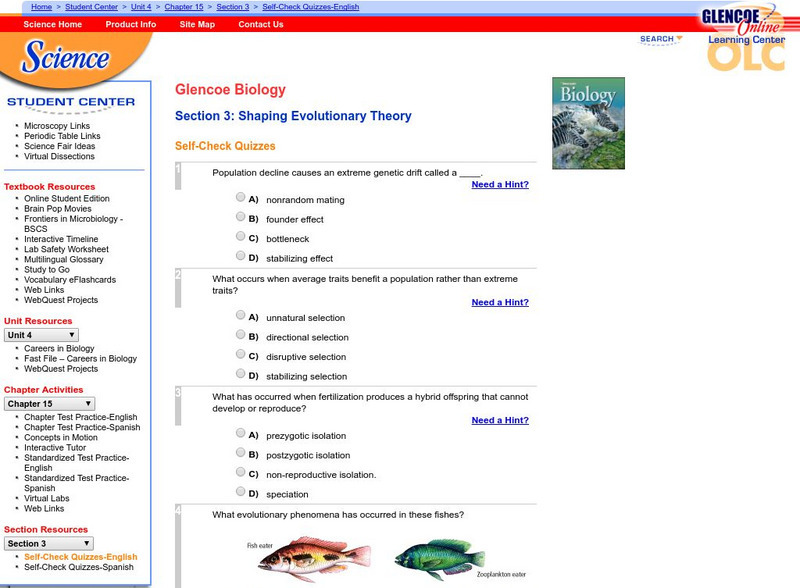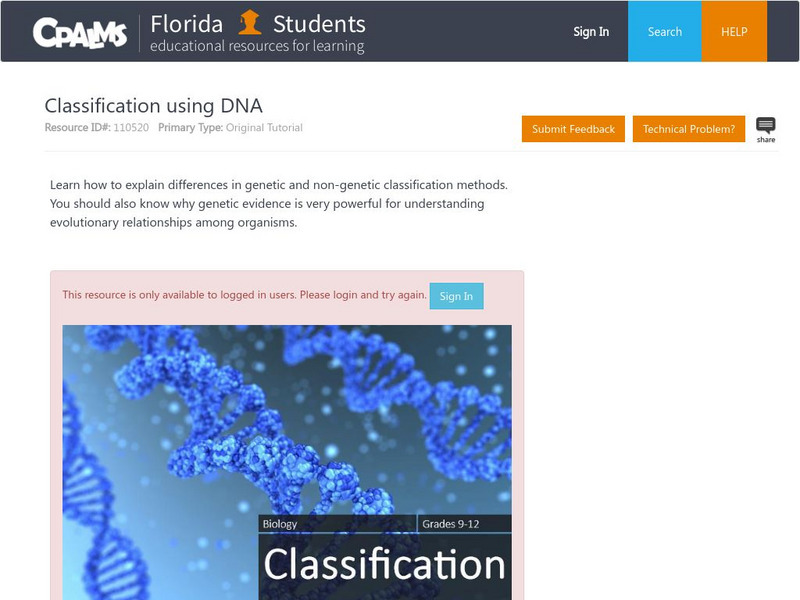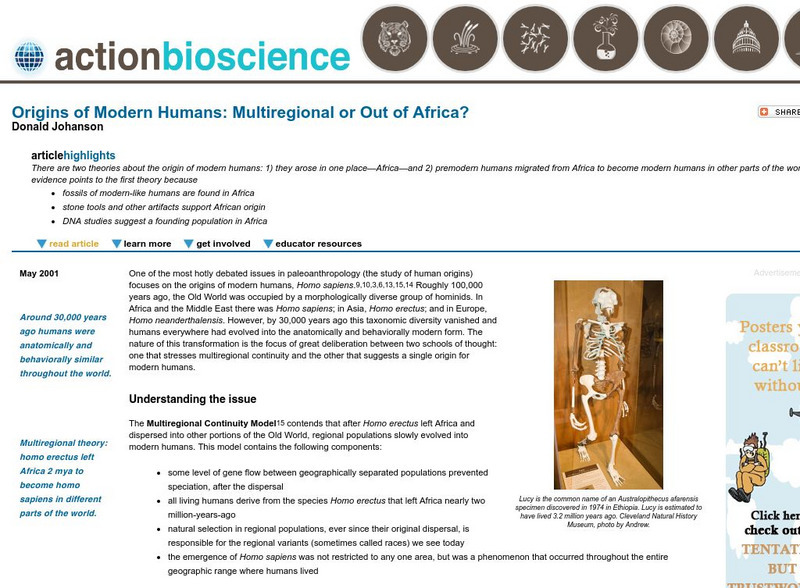Hi, what do you want to do?
University of California
University of California Museum of Paleontology: Similarities and Differences
A module explaining how two different organisms can possess similar traits by sharing a common ancestor(homology) or due to convergent evolution(analogy).
PBS
Pbs Learning Media: Darwin's Letters to Lyell
In this letter written to his friend and mentor Charles Lyell less than three weeks after the publication of "On the Origin of Species", Darwin describes the reaction of the great anatomist Richard Owen to his theory. From Charles...
Smithsonian Institution
National Museum of Natural History: Human Origins: Human Family Tree
Find the human ancestor you are interested in and click on it either in the timeline or the list below for more details. Each fossil or reconstruction pictured includes links to more details about it.
National Health Museum
Access Excellence: Making a Phylogenetic Tree Lesson Plan
Constructing phylogenetic trees may be a daunting task for students, but this lesson plan is a simulation of what molecular biologists must do to determine relationships. This plan is for students who have a good grasp of DNA structure...
National Health Museum
Nhm: Restriction Maps to Cladograms Lesson
This lesson plan requires students to analyze DNA restriction maps to determine the differences in the sequence for several primates and humans. They then use the information to create a cladogram.
Other
Evolution for Teaching: School of Science and Engineering
A reference page containing information related to evolution. Topics discussed on the page is the theories, human evolution, evolutionary evidence, Darwin, and Earth's history.
PBS
Pbs: Intimate Strangers: Tree of Life
Find out how Dr. Carl Woese used RNA to develop the tree of life.
TED Talks
Ted: Ted Ed: How Did Feathers Evolve?
To look at the evolution of modern bird feathers, we must start a long time ago, with the dinosaurs from whence they came. Carl Zimmer explores the stages of evolution and how even the reasons for feathers have evolved over millions of...
PBS
Pbs Learning Media: Life's Grand Design
Are nature's complex forms evidence of "intelligent design"? In this Evolution essay, biologist Kenneth Miller explains how the processes of evolution account for complex structures such as the human eye.
PBS
Pbs Learning Media: Fossils in the Gobi
Biologist Mike Novacek discusses his discovery of mammal fossils in the Gobi Desert and tells us what we can learn from them. From an episode about extinction broadcast on the PBS series "Evolution."
CK-12 Foundation
Ck 12: Life Science: Fossils
[Free Registration/Login may be required to access all resource tools.] Fossils are the preserved remains of animals, plants, and other organisms from the distant past. By studying fossils, evidence for evolution is revealed....
PBS
Pbs Learning Media: Early Tetrapod Fossils
In this transcript of an interview filmed for the PBS series "Evolution," scientists Ted Daeschler and Neil Shubin describe the discovery and significance of some of their key fossil finds.
University of California
Ucmp: Learning From the Fossil Record
Fossils provide scientists with clues about Earth's past. This site from the University of California's Museum of Paleontology is great for exploring lots of information on fossils.
PBS
Pbs: Comparative Embryology: The Vertebrate Body
Provides a student handout in PDF format that looks at the developmental stages of five vertebrate organisms from fertilization to adult form. Students can look at the pictures to see the similarities and differences at the embryo stage...
Stanford University
Stanford Presidential Lectures: Stephen Jay Gould
Standford University provides interesting biographical and professional information on Stephen Jay Gould and his many contributions to scientific thought, including his efforts to help people see science "As something that is important...
Story Behind the Science
Story Behind the Science: Ice Ages, an Alien Idea [Pdf]
Article describing the scientific evolution of theories about the ice ages and glaciation. The international efforts of scientists are noted, as well as the influence of societal mores on how long it would generally take for new ideas to...
Other
The Expanding Balloon Experiment
Great science experiment to help aide in the understanding of the Big Bang Theory. Students are able to complete this experiment with little materials and individually.
McGraw Hill
Glencoe Biology: Shaping Evolutionary Theory: Self Check Quiz
This multiple-choice quiz on shaping evolutionary theory allows students to get hints for each question and check their answers after submitting.
CPALMS
Florida State University Cpalms: Florida Students: Classification Using Dna
Identify the differences in genetic and non-genetic classification methods. Why is genetic evidence powerful for understanding evolutionary relationships among organisms? Find out!
American Institute of Biological Sciences
Action Bioscience: Origins of Modern Humans: Multiregional or Out of Africa
Two migration theories are on the table for consideration. Weigh the evidence of each one in this article by Donald Johanson of Lucy fame.
Curated OER
Unesco: Israel: Sites of Human Evolution at Mount Carmel
Situated on the western slopes of the Mount Carmel range, the site includes the caves of Tabun, Jamal, el-Wad and Skhul. Ninety years of archaeological research have revealed a cultural sequence of unparalleled duration, providing an...
Curated OER
Smithsonian Nmnh: What Does It Mean to Be Human, Human Evolution Evidence
What does it mean to become human? This brilliant and detailed resource examines early man's behavior, including information on stone tools he used, burial, clothing, and shelter. Find information on genetics including human skin color...
Wonderville Media
Wonderville: Charles Darwin
Charles Darwin was born in England on February 12, 1809. He was a "naturalist," best known for his theories of evolution. Darwin collected evidence that all life on Earth "evolved" from a common ancestry. He studied the process of...
Curated OER
Unesco: Tanzania: Ngorongoro Conservation Area
The Ngorongoro Conservation Area spans vast expanses of highland plains, savanna, savanna woodlands and forests. Established in 1959 as a multiple land use area, with wildlife coexisting with semi-nomadic Maasai pastoralists practicing...







